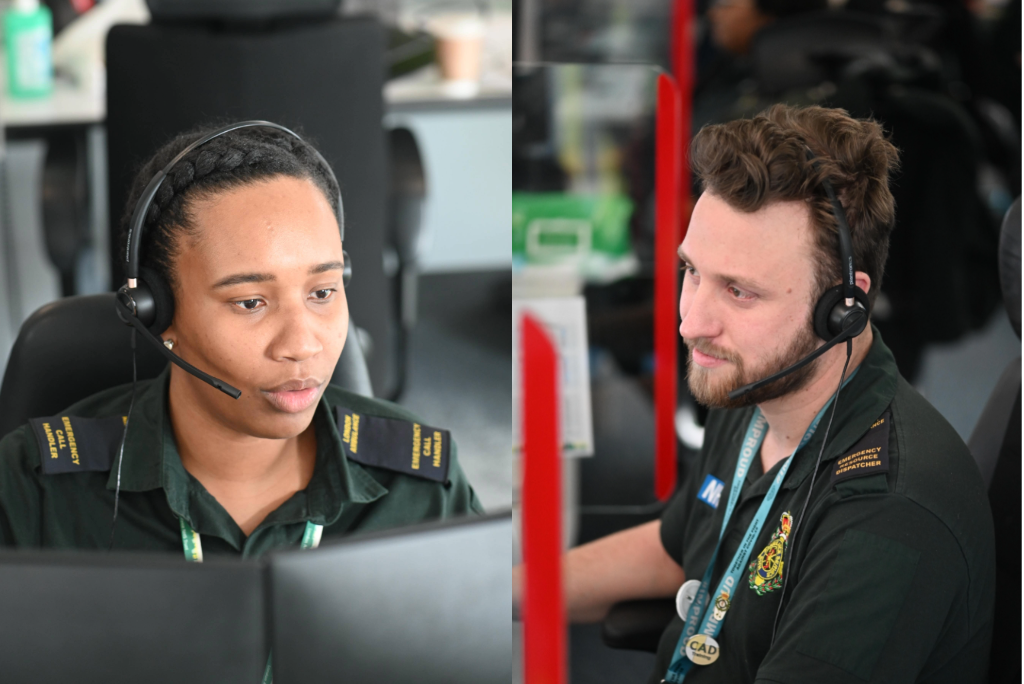Control room staff
In our control room, teams of Emergency Call Handlers answer 999 calls and send our vehicles out across London to treat patients. We also have 111 Health Advisors answering and taking charge of all our incoming 111 calls.

Answering these calls is not always a matter of life or death—but as an Emergency Call Handler the way you listen and interpret each call will make a vital difference to the response our patients receive.
When you receive a 999 call, you are responsible for recording the right information, often under difficult circumstances, before alerting and informing frontline staff.
You enter details on to a computer system which categorises the seriousness of the illness or injury, to ensure that the most critical patients receive the fastest response.
There are two elements to the work of our control room—talking to patients on the phone and coordinating ambulance staff and vehicles. You are trained to do both.
What training do I get?
We provide extensive training to ensure that you have the skills, knowledge and confidence to be able to handle 999 calls.
Training is modular and you will not move on to the next stage until you have passed written, practical and workplace assessments.
For more information, see our role specific FAQs for Emergency Call Handlers and 111 Health Advisors
What benefits will I receive?
For all our staff, there is the job satisfaction of knowing that what you do makes a difference, but we offer a range of other benefits as well. Find out what they are.
How do I apply?
We advertise all vacancies via the NHS Jobs website, where you can register for an email alert as soon as a position is advertised. We are always interested in hearing from qualified paramedics.
We will also advertise them on the current vacancies section of our website.

Follow us on social media: